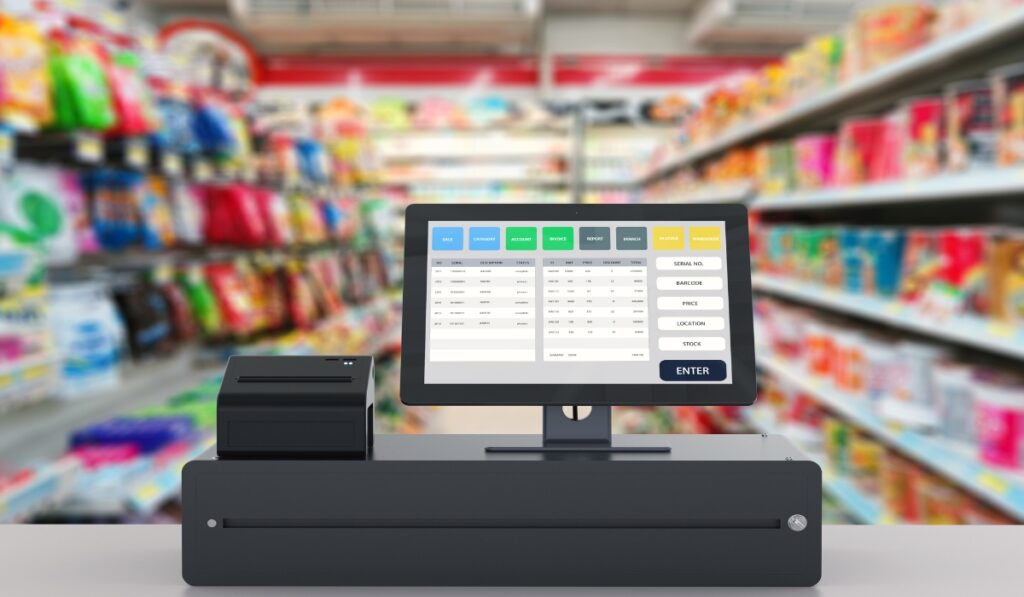Taking payments is a multifaceted process. Sure, you need your card processing provider, a merchant account, and a card reader. But you might also need a payment gateway. And a POS system. And maybe you need some accountancy or inventory management software thrown in for good measure. Oh, and you planned to do a loyalty scheme - how do you go about setting that up?
With merchant services, you can sign up for a bunch of these business services in one place.
So, if you’re a brand new business or an established business who wants to streamline your services, read this post where we explain what merchant services are and whether they are right for your business.
What are merchant services?
Merchant services is a catch-all term to describe a group of payment-related services for businesses.
It covers software, hardware, and other services.
Merchant services are designed to make the process of taking payments straightforward for businesses.

What is the difference between a merchant account and merchant services?
It’s easy to confuse merchant accounts and merchant services. They actually overlap so they are very similar.
- Merchant account: A merchant account is a special type of bank account which holds the funds you’ve been paid before they are transferred to your business bank account. You aren’t able to access the merchant account - it just works in the background as a special, temporary safe place!
- Merchant services: These services also involve transferring money to and from merchant accounts, but also cover other services.
Are there different types of merchant services providers?
Merchant services providers (MSPs) come in all shapes and sizes, catering to different types of businesses. Here are the main types:
- Traditional merchant services providers: They provide payment processing services for brick-and-mortar businesses. Their focus is on ePOS systems and hardware for in-person transactions.
- Independent Sales Organisations (ISOs): ISOs resell merchant services from banks/other financial institutions. They have a wide range of services that include payment processing as well as other business tools.
- Mobile payment processors: They focus on assisting customers who need to take payments on-the-go, for example at a market stall or a food truck. They offer mobile card readers and simple mobile POS systems.
- All-in-one payment platforms: These are the go-to if you want everything covered. They coordinate payment processing, POS systems, and other tools like inventory management, CRM, and more.
- High-risk merchant services providers: If your business is deemed “high-risk” (maybe due to the nature of your products or industry), these providers offer services tailored to mitigate much of the risk, and usually charge a higher fee.
What’s included in merchant services?
The array of services varies from provider to provider. It’s possible to have some or all of the following included:
- Credit card processing: This can be online or offline or both.
- Payment gateways: This is software that allows you to take payments online.
- Credit card readers: This is hardware that allows you to take payments in-person.
- Point-of-sale (POS) systems: This is all the hardware set-up you may need, including tablets, cash drawers, receipt printers, and more.
- E-commerce support: Should you have any issues with your online selling, you’ll have quick support.
- Gift cards: They can offer the ability to take gift cards as a method of payment.
- Loyalty schemes: If you wish to set up a loyalty scheme where customers get perks for repeat purchases, this can be set up by some MSPs.

What are the benefits of a merchant service provider?
The main benefits of a merchant service provider include but are not limited to:
Strengths
-
Easy to set up - You can get multiple necessary services rolled into one. This saves you time searching for providers for each individual service.
-
Can save costs - If you spread your services across multiple providers, you may save money as you won’t have to pay the different set-up fees and ongoing use fees for every company.
-
Enhanced security - MSPs have to adhere to strict security protocols. You’ll know your risk of data breaches and fraud is much lower.
-
Prompt payment processing - You can expect quick payment processing with a MSP. This will enable you to manage your finances more easily.
-
Insights - Many MSPs offer a dashboard with insights from your reporting/analytical tools. You can see if there is a trend in your selling pattern and monitor things like employee productivity and inventory so you can make quick changes if needed.
-
Support on hand - If you have any technical issues, you can get in touch with a dedicated team to help you out.
How much do merchant services cost?
The cost of merchant services depends on:
- The provider
- What services are included in the package.
The way you are charged can vary too. You could be charged:
- Flat monthly fees.
- Per transaction fees.
- A tiered pricing structure.
- One-off set up fees for hardware and software.
You can compare prices for credit card processing with CardSwitcher. Use our handy tool today!
Who offers merchant services?
Generally, banks and financial service companies offer merchant services.
In the UK, some notable merchant service providers include:
- WorldPay
- Barclaycard
- Lloyds Cardnet
- Elavon
- AIB Merchant Services
- SumUp
What do I need to open a merchant services account?
Taking on customers is risky for merchant service providers. They need to be sure that you are a legitimate, trustworthy business, so you’ll need to provide quite a bit of information to open a merchant services account.
The information you may be asked for includes:
- Business accounts
- Turnover
- Transaction information (average transaction value, frequency, % of card payments versus other payment methods)
- What products you sell
- Reference from current supplier (if applicable)
With all the background checks, it can take a few weeks to get you up and running with merchant services. But from then on, it is smooth sailing!

How do I pick the best merchant service provider for me?
There are a few categories of questions you should answer to help you decide which merchant service provider is best for you.
What are your sales like?
- Do you already sell online or in person or both?
- What is your current volume of transactions?
- What do you sell?
- Do you anticipate scaling up soon?
These questions will help you decide what type of MSP you need, for example a mobile service provider for in-person payments on-the-go, a high risk provider due to the products you sell, or an all-in-one to help you cover different areas.
If you think you’ll scale up in the next few years, you’d want to see if the MSP can offer services that will cater to you as you grow, as it will be a big hassle switching to a new provider in the near future.
What tools do you need?
- Do you use extra software already for accounts, inventory management, CRM, etc?
- Are you happy with the providers you have for different services already?
- Can they integrate with tools you already have?
You may want an all-encompassing MSP which provides services to help you manage many different aspects of your business, not just payment processing. If you’d prefer to keep this separate or you’re happy with your existing providers, then you may want to consider MSPs with fewer add-on services, or see if they can work with what you’ve got.
What costs are involved?
- What can you afford to pay?
- Does the MSP charge for early termination, monthly fees, pay-per-use, and other fees?
Different MSPs charge for different things so it can be complicated knowing the true cost. Be sure to get quotes that include potential hidden costs, like early termination fees, security compliance, and so on. Sometimes these are rolled into one monthly fee, so be sure to compare the full picture.
What is the customer service situation like?
- What hours do they operate?
- What methods can you use to get in touch?
- What are past and present customer reviews like?
If you have a technical issue or need general advice, how easy is it to get in touch with the MSP? If they offer only a contact email that is buried deep down on their site, they might not be the most reliable. If they offer 24/7 support via email, phone, or live chat, then that’s obviously a better deal. Check out what their customers have said on review platforms like TrustPilot.
Conclusion
Merchant services can make running your SME so much easier. You’ll have access to a wide variety of helpful features for managing your business, including card processing, sales data, and more. You won’t have to hunt high and low for individual providers and keep track of multiple payments every month.
It’s important to pick the best fit MSP for your business at the best price for you. You can compare prices with CardSwitcher today - you can save up to 40% with the few clicks of a button!


